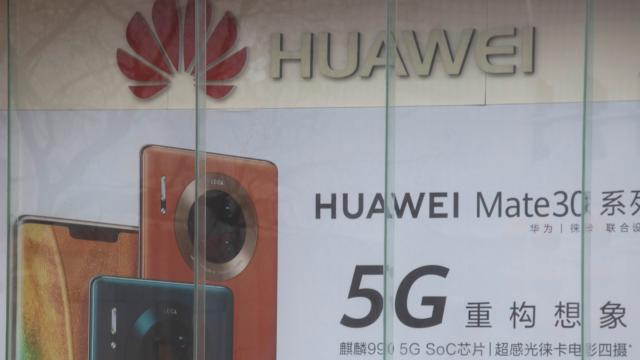In yet another escalation of the ongoing U.S.-China feud over Chinese tech giant Huawei, Donald Trump’s administration took steps to greatly expand punitive trade sanctions against the company on Friday, Reuters reported.
Huawei is the world’s largest telecommunications equipment manufacturer, and U.S. intelligence agencies have lodged allegations that it could be a front for Chinese security and intelligence services. The firm is also facing charges of trade theft, sanctions violations, and racketeering in the U.S. for allegedly dodging prohibitions on trade with Iran through a complicated network of front companies and directing its staff to steal designs from U.S. partners. (One example is “Tappy,” a T-Mobile robot that a Huawei engineer allegedly lifted components from.)
The White House issued an executive order essentially banning Huawei from sourcing components made by U.S. companies in May 2019; the order on Friday goes one step further. When foreign companies that manufacture semiconductors utilise U.S. technology during the production process they must now obtain export licenses before they can sell to Huawei. That dramatically expands sanctions on Huawei’s ability to continue making hardware on a worldwide basis, as it would be extremely difficult to put together a semiconductor production chain that did not involve any U.S. tech.
According to the Wall Street Journal, the new restrictions will have an immediate impact on Huawei’s ability to do business with semiconductor manufacturer Taiwan Semiconductor Manufacturing Co. (TSMC), as well as others in China and South Korea. TSMC, which is also a major Apple supplier, announced on Friday that it would be opening a major plant in Arizona but denied that it was in any way connected to the Huawei mess.
In addition to interfering with Huawei’s ability to build telecoms equipment, the harsher rules will likely incur significant delays in its ability to build consumer tech like smartphones and laptops. The Journal wrote that U.S. semiconductor manufacturers have become more wary of doing business with other Chinese companies, wondering whether restrictions could be put on their business next. According to Reuters, former Commerce Department official and lawyer Ken Wolf described the restrictions as a “novel, complex expansion of U.S. export controls,” but noted that foreign companies could still sell semiconductors of non-Huawei design to the company without the licence requirement.
There is a 120 day grace period before the new rules take effect; companies will have to ship equipment purchased by Huawei that falls under the rules before that time is over. Trump’s Commerce Department has also approved some U.S. companies to keep selling to Huawei under the rules already in effect and is likely to do the same in the future.
The move could also backfire, as some companies may decide U.S.-made semiconductor manufacturing tech has too many strings attached. The U.S. currently has a 45 per cent share of that market, figures from industry group SEMI cited by the Journal show, and it could go down if the White House presses too hard. The Chinese government is also not thrilled about the matter, according to Reuters, and has signalled through state-owned media that it may retaliate by placing U.S. companies like Apple, Cisco, and Qualcomm on its own blacklists or halting Chinese purchases of Boeing jets.
